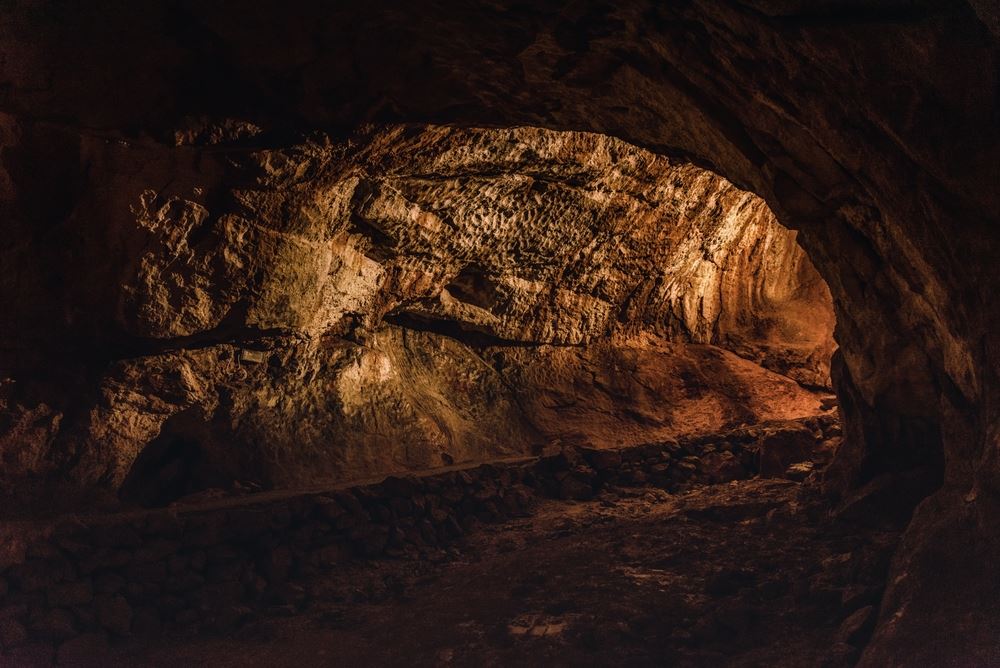
Cave-dwellers knew what they were doing
Throughout centuries, people have found refuge and lived lives from within the confines of caves. There’s a reason for that. Caves provide shelter from the weather, protection from beasts, and a consistent temperature. In reality, those cave dwellers knew what they were doing. They were tapping into the consistent temperature of the earth, utilizing the concept of what would – a couple of thousand years later - become heat pumps!
The temperature of the earth is consistent. Depending on your latitude, the ground below the surface of the earth will range from 45 to 75 degrees Fahrenheit. Here in Florida, the ground temperature is about 72 degrees, making a heat pump very efficient. (Sorry, Boston! Your ground temperature runs about 42 degrees!)
From Cave-dwellers to Concept Crafters
Horace-Bénédict de Saussure
The concept of the heat pump dates to the late 1700s when Swiss botanist, physicist, and scientist Horace-Bénédict de Saussure did in-depth experiments on temperature, humidity, and solar heat. (You know how your hair gets wild when it’s humid? Saussure invented a hygrometer, a device that measured humidity using human hair!)
He also did lots of work with solar energy, trapping the heat of the sun in his “hot boxes.” His experiments often focused on temperatures. It was Saussure who determined that the ocean was always cold in its deepest depths.
Eventually, his work led to the “vapor-compression refrigeration” cycle, a fundamental of the modern air exchanger, essential to the heat pump.
Jacob Perkins
Jacob Perkins was an American inventor and mechanical engineer born in 1766. He spent time in Britain and the States.
Over his lifetime, he earned 21 American patents and 19 British patents for various devices.
One of those patents was in 1834 when he got the first patent for the vapor-compression refrigeration idea that Saussure had proposed. Perkins discovered that liquid ammonia made things cooler. Perkins is now known as the father of the refrigerator, but his “refrigerant” work is integral to the closed-loop system that transfers heat from one location to another.
Modern heat pump technology had begun.
The heat pump evolves
Over the years, heat pumps underwent significant improvements and innovations:
Refrigerants:
The choice of refrigerants played a pivotal role in the efficiency of heat pumps. The transition from toxic and environmentally harmful refrigerants like sulfur dioxide to more eco-friendly options like Freon in the early 20th century was a crucial milestone.
Refrigerants continue to improve.
In 2024, environmentally friendly refrigerants replace older ones. As of 2024, R-454b will replace R410a.
Energy Efficiency:
In the mid-20th century, the focus shifted towards enhancing energy efficiency. The introduction of the Coefficient of Performance (COP) metric allowed for quantifying a heat pump's efficiency.
Modern heat pumps boast impressive COP figures, often exceeding 3.0, meaning they produce three times as much heating or cooling energy as the electricity they consume!
Geothermal Heat Pumps:
The 1970s saw the emergence of geothermal heat pumps, which tap into the Earth's constant temperature to provide efficient heating and cooling. These systems have gained popularity due to their sustainability, cost-effectiveness, and reduction in the use of fossil fuels.
It used to be that only homeowners with big lots could do heat pumps because the horizontal loop that goes underground required a lot of space. All that changed with the invention of the vertical loop system which takes far less space and is just as efficient.
The Global Impact of Heat Pumps
Today, heat pumps are making a significant impact globally:
In Europe, heat pumps are widely adopted for space heating and hot water production. According to the European Heat Pump Association, there were over 10 million heat pumps installed in Europe by 2020.
In Asia, countries like Japan and South Korea have embraced heat pump technology as a sustainable solution to reduce carbon emissions and combat climate change.
Even some of the coldest countries, Sweden, Norway, and Finland have embraced heat pumps. (Proof that they work well no matter how cold the climate!) These three countries have the honor of having more heat pumps per 100 households than any other country in the world. Four out of every ten households has installed a heat pump.
The United States has also seen steady growth in heat pump adoption, driven by energy efficiency regulations and incentives. By 2020, there were more than 30 million heat pumps in operation across the country, as reported by the U.S. Department of Energy.
In Asia, countries like Japan and South Korea have embraced heat pump technology as a sustainable solution to reduce carbon emissions and combat climate change.
Tax credits
Incentives from the Federal Government are big.
In 2022, the United States passed the IRA, The Inflation Reduction Act.
One of the focuses of the IRA was to decrease greenhouse gases.
Energy improvements can earn you sizeable tax credits.
The tax credit is earned the year you install your new heat pump or heat pump water heater. You’ll get 30% of the total project costs, up to $2,000.
We’ve come a long way…
We no longer have to huddle in a cave to stay warm enough year-round to survive!
But we still benefitted from the experience of cave-dwellers who understood that the earth could both keep us warm and keep us cool.
The history of the heat pump is a remarkable journey of innovation and sustainability. From its humble beginnings at the beginning of mankind to its widespread adoption worldwide, heat pumps have proven to be a vital tool in achieving energy efficiency and combating climate change.
Exciting times ahead
We’ve come a long way, but there are still innovations in the future.
As technology advances, heat pumps will offer us even more. We can expect even more efficient and environmentally friendly solutions in the future, making a positive impact on our planet and our comfort.
Call ServiceOne with questions. We’re happy to discuss the best options for your air conditioning, heating, and plumbing systems. Whether you need maintenance, repair, or replacement, we can help!

